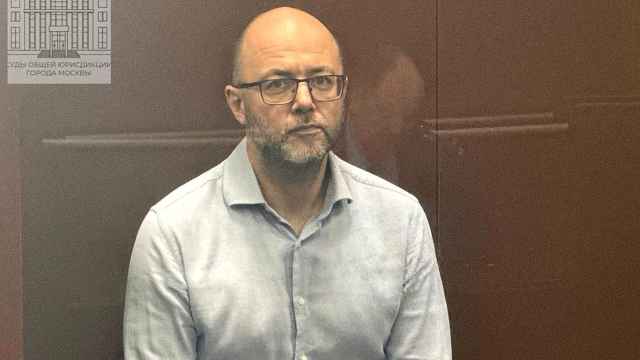The head of Russia's newest film studio intends to revive a 100-year-old filmmaking industry, which saw its best days fade with the collapse of the Soviet Union more than 20 years ago.
Ilya Bachurin, chief executive of Glavkino, aims to recapture the country's glorious filmmaking past while luring some of today's lucrative filming contracts.
State-of-the-art Glavkino is the first studio in Russia equipped to make films in 3-D.
Bachurin said acquiring modern technology and discovering new filming techniques are key to any plans to restore Russian filmmaking to world prominence.
"If we had not created the technological basis for contemporary topical film production, we would have missed an opportunity to help the rebirth of modern cinema in Russia," Bachurin said.
The project's founders include Bachurin, producer Fyodor Bondarchuk and Konstantin Ernst, director of state-run Channel One.
Launched in the spring after 10 years of preparation, Glavkino consists of a 12,000-square-meter pavilion space, including one of the largest film studios in Eastern Europe. The studio is available for lease to local and foreign filmmakers.
The project has cost $89 million so far, all borrowed from VTB for 10 years. It also involves a production segment aimed at creating films under its own brand.
With its 3-D technology approved by 3-D guru James Cameron, director of the highest-grossing film in history, "Avatar," Glavkino aims to join the top-tier of global production.
Glavkino's goals would also deliver on the ambitions of President Vladimir Putin, who as prime minister chaired several meetings on the development of domestic cinematography.
Last year, Putin ordered 4.3 billion rubles ($130 million) from the federal budget to support the Russian film industry, which has a substantial potential domestic market of more than 11 million people in Moscow alone and 143 million nationwide.
Foreign films, especially U.S.-made films, continue to see rising audience figures in Russia, while box office figures for domestic productions, already a fraction of the total, continue to fall, according to Movie Research.
Bachurin believes that one of the reasons for the discrepancy in performance and quality between domestic and foreign movies is the lack of high-quality, modern filming facilities in Russia.
"The market is unsaturated. It is experiencing a large demand in production space, in production capacities and technology options," he said.
Mosfilm, which produced more than 3,000 films before the collapse of the Soviet Union, now makes just over 100 films a year.
Glavkino, which Bachurin says charges 10 to 30 percent less than Mosfilm and other major Russian studios, plans to make 50 TV programs and 10 films by the end of this year and double its capacity next year, when construction is complete.
The payback, Bachurin said, will be in the professional exchange, as prominent foreign producers and actors share their experience with the locals.
That will allow Russians "to adopt some of their shooting technology and raise the bar for local film production," he said.
The first foreigner to test the studio will be British director Peter Greenaway, who received a grant from Glavkino.
A Message from The Moscow Times:
Dear readers,
We are facing unprecedented challenges. Russia's Prosecutor General's Office has designated The Moscow Times as an "undesirable" organization, criminalizing our work and putting our staff at risk of prosecution. This follows our earlier unjust labeling as a "foreign agent."
These actions are direct attempts to silence independent journalism in Russia. The authorities claim our work "discredits the decisions of the Russian leadership." We see things differently: we strive to provide accurate, unbiased reporting on Russia.
We, the journalists of The Moscow Times, refuse to be silenced. But to continue our work, we need your help.
Your support, no matter how small, makes a world of difference. If you can, please support us monthly starting from just $2. It's quick to set up, and every contribution makes a significant impact.
By supporting The Moscow Times, you're defending open, independent journalism in the face of repression. Thank you for standing with us.
Remind me later.





